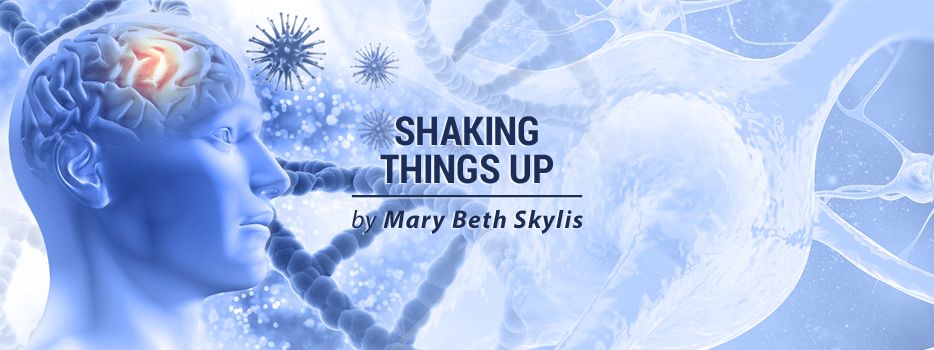Watching My Dad Lose Vocal Power Is Painful
Written by |

“What?” I ask from across the room, closing the distance between my dad and me. I don’t want to ask him to repeat himself again.
“Can you grab me a glass of water and my pills?” Dad raises his voice, and this time I hear him.
I fill a mug with water and collect two pills from the counter. When I close the distance between us, Dad tells me his voice was really soft a few months ago, and now it seems to be returning with a little more fury. But he didn’t notice the actual softening — just that people were asking him to repeat himself more frequently.
He used to be able to shout across our 10-acre yard, conveying his message with little effort. But today, I notice him struggling to be heard.
It’s been seven years since Dad’s diagnosis of Parkinson’s disease. He still drives short distances, manages to tackle daily tasks, and tends to the yard for extra exercise. But the changes in his voice are measurable.
Dad has always been soft-spoken. I have only one memory of him yelling, and that was after I’d gotten into an altercation with my brother. Although Dad has never been a particularly loud or rambunctious person, the softening of his speech shocks me every time I ask him to repeat himself. I don’t want him to grow quiet, and being unable to hear him only seems to discourage him from speaking.
I know a loss of vocal strength is commonly reported in Parkinson’s patients. The evidence that Dad is losing vocal strength doesn’t startle me; in fact, 89% of Parkinson’s patients experience changes to their voice. Yet, I wonder if there’s more we can do to further delay the onset of Parkinson’s symptoms.
A home full of music
It seems odd to be measuring a decline in my dad’s vocal strength because of the volume of music that resounds in our household. Mom is a piano teacher. Dad learned clarinet and piano while in school. My brother is an opera singer. Noise is a constant in this household. But this could also be why Dad’s softening words are so noticeable. I can’t hear him anymore.
I can’t help but think about the animated film “The Little Mermaid” when noticing the changes in Dad’s voice. It’s as if he, too, was robbed of his voice by a monster, like the character in the film. Parkinson’s disease swooped in and stole his ability to enunciate consonants and project words across the house. His lips move, but the sound is faint or nonexistent.
But for Dad, there was no exchange like there was in the film; he doesn’t get to swim in the sea in exchange for his voice. Instead, he just fights harder to maintain the abilities he still has. What a cruel and hateful fate.
Managing vocal changes
My little sister still lives at home, and I tell her to do more things that’ll get my dad to yell at her. “We need to get him to use his voice,” I say. She giggles, and agrees to cause a little bit of trouble every now and again. Maybe she’ll pretend she doesn’t hear him to get him to speak a little more loudly.
Dysarthria, or difficulty with speech, can worsen with time. But according to my research, it’s possible for a speech pathologist to help. I’ve also read about harnessing the power of music to combat this Parkinson’s symptom. Maybe we just need to get my dad to sing again to stir the music in his soul.
The Parkinson’s Foundation provides a speech and voice quiz for those who are interested in measuring changes to their speech. Maybe we’ll give that a try and go from there.
Have you or a loved one experienced similar issues with speech? Please share in the comments below.
***
Note: Parkinson’s News Today is strictly a news and information website about the disease. It does not provide medical advice, diagnosis, or treatment. This content is not intended to be a substitute for professional medical advice, diagnosis, or treatment. Always seek the advice of your physician or another qualified health provider with any questions you may have regarding a medical condition. Never disregard professional medical advice or delay in seeking it because of something you have read on this website. The opinions expressed in this column are not those of Parkinson’s News Today or its parent company, Bionews Services, and are intended to spark discussion about issues pertaining to Parkinson’s disease.



Leave a comment
Fill in the required fields to post. Your email address will not be published.